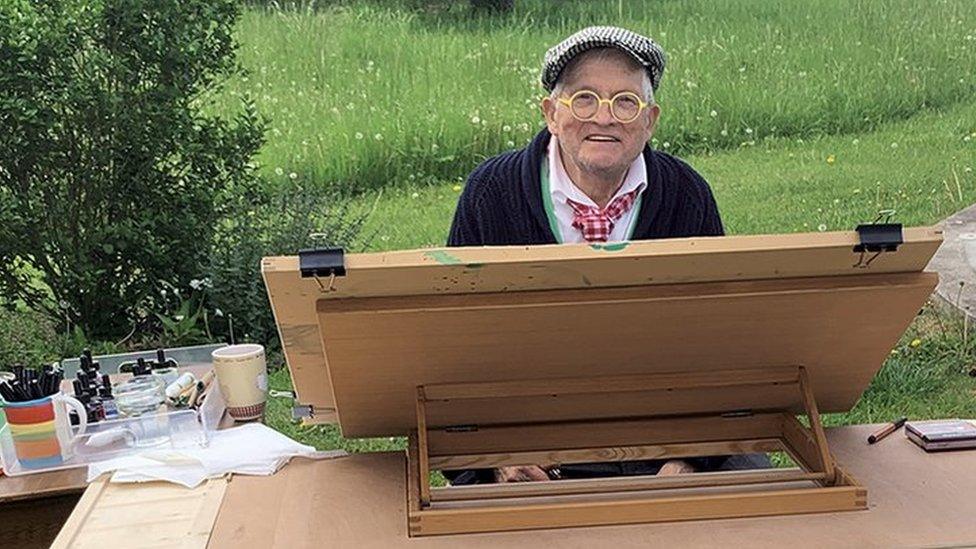Alex Echo: Artist reveals 'shock' over Parkinson's diagnosis
- Published
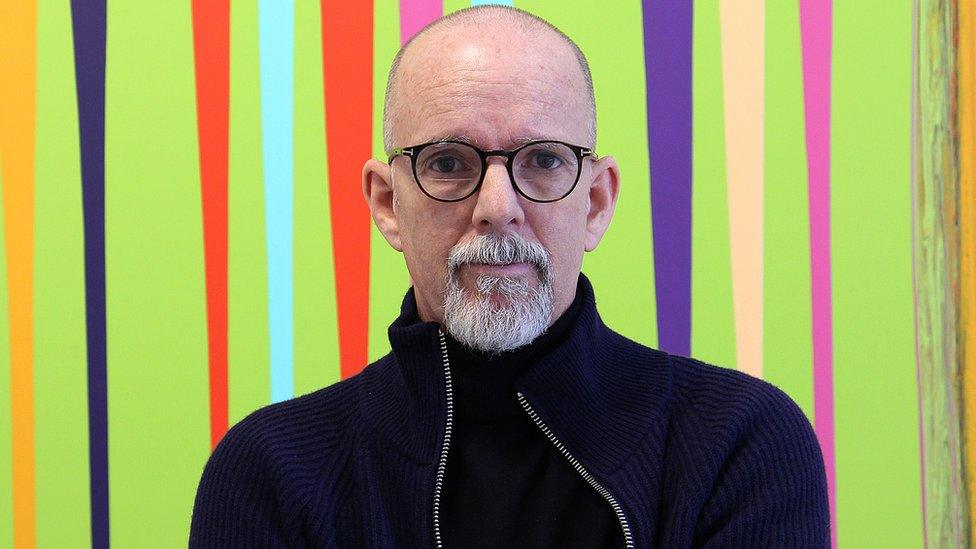
Echo's paintings have previously attracted buyers including Oprah Winfrey and former US president Jimmy Carter
Artist Alex Echo has described his "shock" at being diagnosed with Parkinson's, which has forced him to give up most of his painting work.
Echo's abstract artworks have been bought by Robert Downey Jr, Oprah Winfrey and Cindy Crawford.
The disease has severely limited his painting, but Echo says digital art has given him a new creative outlet.
"Parkinson's has impacted my work as a painter because my level of skill has diminished so much," he tells BBC News.
The three main symptoms of Parkinson's disease are involuntary shaking, known as tremors, slow movement and stiff and inflexible muscles. It can also lead to a loss of balance and trouble with sleeping.
"I'm far more creative now as a digital artist, and it's so much fun," Echo says. "I feel invigorated and alive. So my creativity hasn't changed, but the medium has changed."
'Lightning bolt'
If you search Alex Echo on Google, you may initially be asked if you want to buy a smart speaker - his name, after all, does sound like a cross between the Amazon Echo and the voice command "Alexa".
The artist is not, by his own admission, a household name - but his colourful and abstract paintings have been displayed in prestigious art galleries around the world and attracted buyers including President Jimmy Carter and the late Prince Rainier of Monaco.
In his first media interview since being diagnosed, the 63-year-old recalls: "I started to notice the symptoms about seven years ago, and I had mild tremors. And at first I wasn't worrying because it just seemed like I was ageing, I was in my mid-50s." His GP agreed it wasn't anything to worry about at that stage.
"But every year it was a little bit worse," Echo says. "And then about two years ago, I woke up one morning, couldn't tie my shoelaces and couldn't write my name."
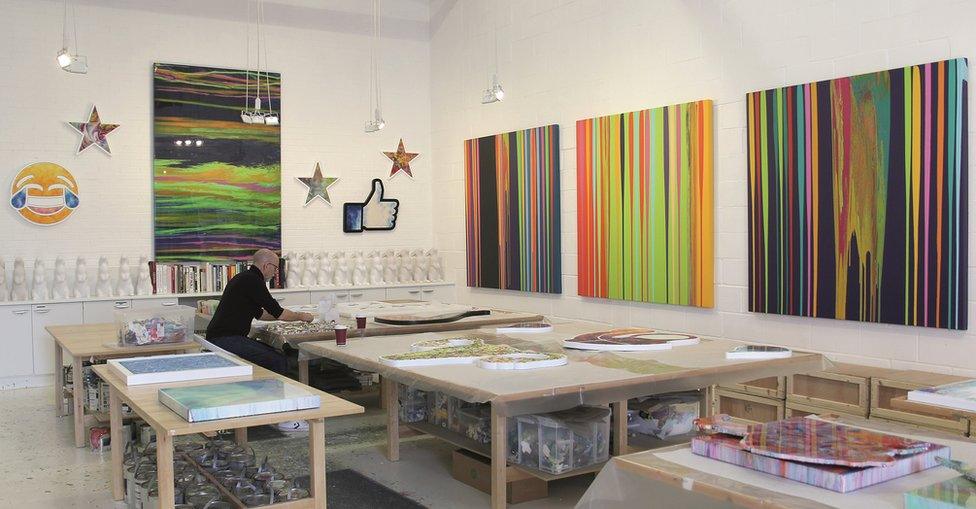
Echo was born in Denver, Colorado but now lives and works in Surrey
Echo describes the sudden loss of some of his faculties as a "lightning bolt" moment. An official Parkinson's diagnosis followed.
"It was a shock," he says. "All I knew about Parkinson's was three words: Michael J Fox. That was it, and I had empathy towards him, he's one of my favourite movie stars. But it never crossed my mind that I might have Parkinson's."
Fox, who starred in Back To The Future, has spoken openly about his Parkinson's diagnosis in recent years and published a book which detailed his experience of living with the disease last year.
Other high-profile figures to have been diagnosed with Parkinson's include University Challenge presenter Jeremy Paxman and comedian Billy Connolly.
'Big impact on income'
Born in Denver, Colorado, Echo now lives and works in Surrey. He has previously designed a bespoke guitar for Eric Clapton, created fabric designs for fashion designer Paul Smith and worked on advertising campaigns for brands such as Absolut.
"I've been a professional painter for 43 years, a long and happy career," he says, reflecting on the effect Parkinson's has had on his work. "And in the last 10 years I've painted over 3,000 paintings. And I went from 40 paintings a month down to 10. So it was a big impact on income."
Echo, who is self-taught, estimates that, prior to his diagnosis, around 90% of his work as an artist involved painting.
"I'd developed my own techniques, and one I can still use is when I literally drip and splash paint to create landscapes and florals," he continues. "And they're my favourite paintings.
"But [Parkinson's] has impacted my work as a painter because my level of skill has diminished so much, my level of control, that I'm down to one technique."

What is Parkinson's disease?
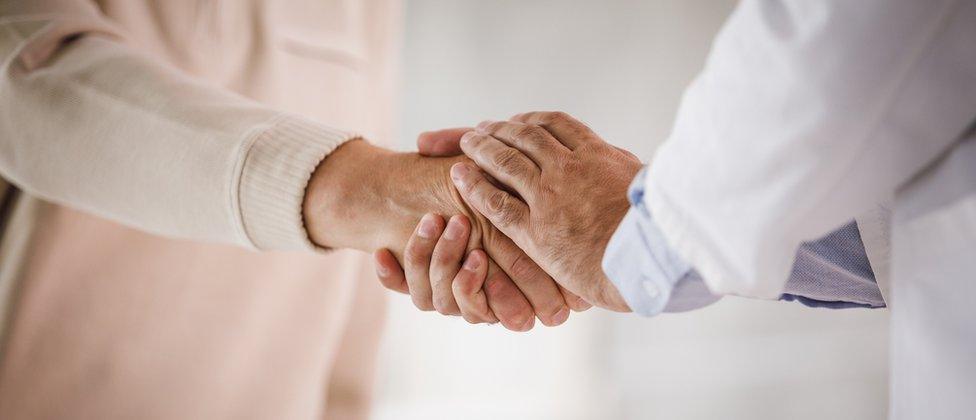
The three main symptoms are involuntary shaking, slow movement and stiff and inflexible muscles
A person with Parkinson's can also experience a wide range of other physical and psychological symptoms, including depression and anxiety, balance problems, loss of sense of smell, problems sleeping and memory problems
Parkinson's disease is caused by a loss of nerve cells in the part of the brain called the substantia nigra
Exactly what causes it is unclear - most experts think a combination of genetic and environmental factors is responsible
About one in 500 people is affected by Parkinson's disease
Although there's currently no cure, treatments including medication and physiotherapy can help reduce the main symptoms
With advances in treatment, most people with Parkinson's now have a normal or near-normal life expectancy
Source: NHS

In addition to the tremors putting paid to his painting work, Echo says the disease has affected his voice, which is weaker, and he sometimes experiences pain when he swallows and even when he blinks. He finds it difficult to balance, joking: "I'm 25 years sober, and I walk like a drunk."
It's hard, it's horrible, I don't want to sugar-coat it... it's kicking my ass," he continues. "However, it's also a blessing because it's renewed my fight to stay alive, it's renewed my interest in creativity."
Echo turned to creating digital artworks after the process of painting became "clumsy and painful". He has recently been working on non-fungible tokens (NFTs) - a concept which has taken the art industry by storm this year - and creating art using his iPad.
"Five years ago, digital was a dirty word in the art world so I used a pseudonym - Lotus Moonbelly," he says. "But it was so fun that I kept doing it. It's developed now into, truthfully, 'I don't want to paint anymore.'
"And I love painting, don't get me wrong - my body, my abilities no longer really allow it at the level of creativity I want. But digital, with my iPad, I can click. My thumbs occasionally click the wrong button because of my Parkinson's. But it's an ever-expanding, unlimited medium."
Digital art has become far more accepted in the art community in recent years. The distinguished British artist David Hockney has been using an iPad for several years and recently unveiled a new series of landscapes.
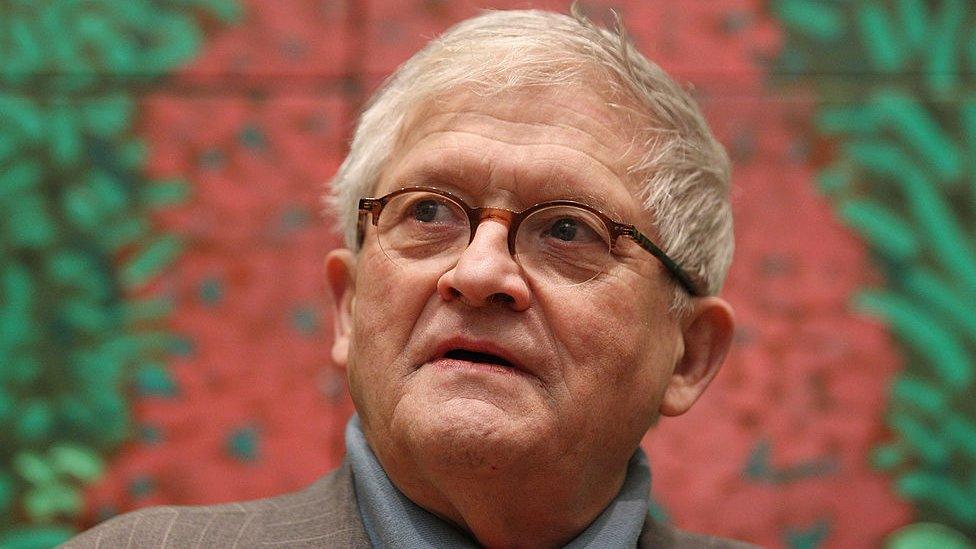
British artist David Hockney also uses an iPad to create digital landscapes
Echo says that it's a "good thing" that the art world "is being forced to change" after some initial snobbery about digital platforms.
"For 500,000 years it was mud on cave walls, and then someone came up with oil, we changed to gouache, we changed to charcoal. We're changing to a new medium now, it's inevitable. New mediums come and go. And digital is here, and it's accessible to anybody, it's democratised the art world.
"I'm doing bigger, better, more fun and more inventive artwork now than I've ever done in 43 years." He jokes: "I'm still going to paint, at a much reduced level. Which my clients are happy about, because it makes [theirs] more valuable!"
Echo dismisses suggestions that NFTs are a flash-in-the-pan. "Abstract expressionism was a bubble that was going to burst. Minimalism was a bubble that was going to burst. Pop Art and Andy Warhol was a bubble that was going to burst," he says. "Painting will never go away, but NFTs are here to stay, they are the most important thing going on in the art world here today."
More recently, the artist has donated his designs to a new home accessories range for retail giant Next, which will see 100% of the profits going to Parkinson's UK.
"That little bit of money we raise will help somebody. And I have no illusions that there's any importance to [speaking out], except that it might fund someone at Parkinson's UK's salary. It might fund some research, some hospice care. That's it. My goal is just to make my kids proud of me."
Michael J Fox on his "acceptance" of Parkinson's disease
Echo says he had a "pity party for about 30 minutes" after his diagnosis but says his family and others within the artistic community have been "completely supportive".
"And truthfully," he laughs, "I milk it for all the sympathy I can get!"
Related topics
- Published21 May 2021
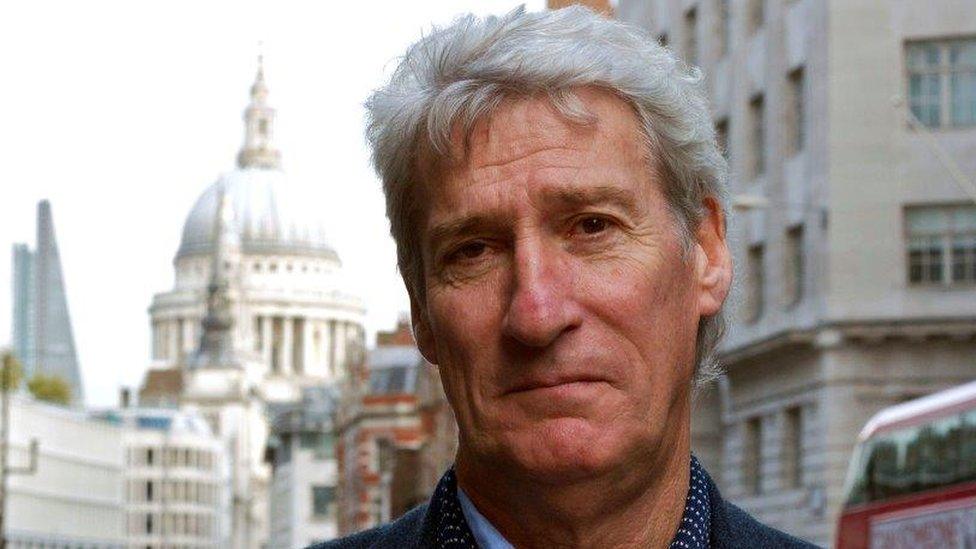
- Published1 April 2020
